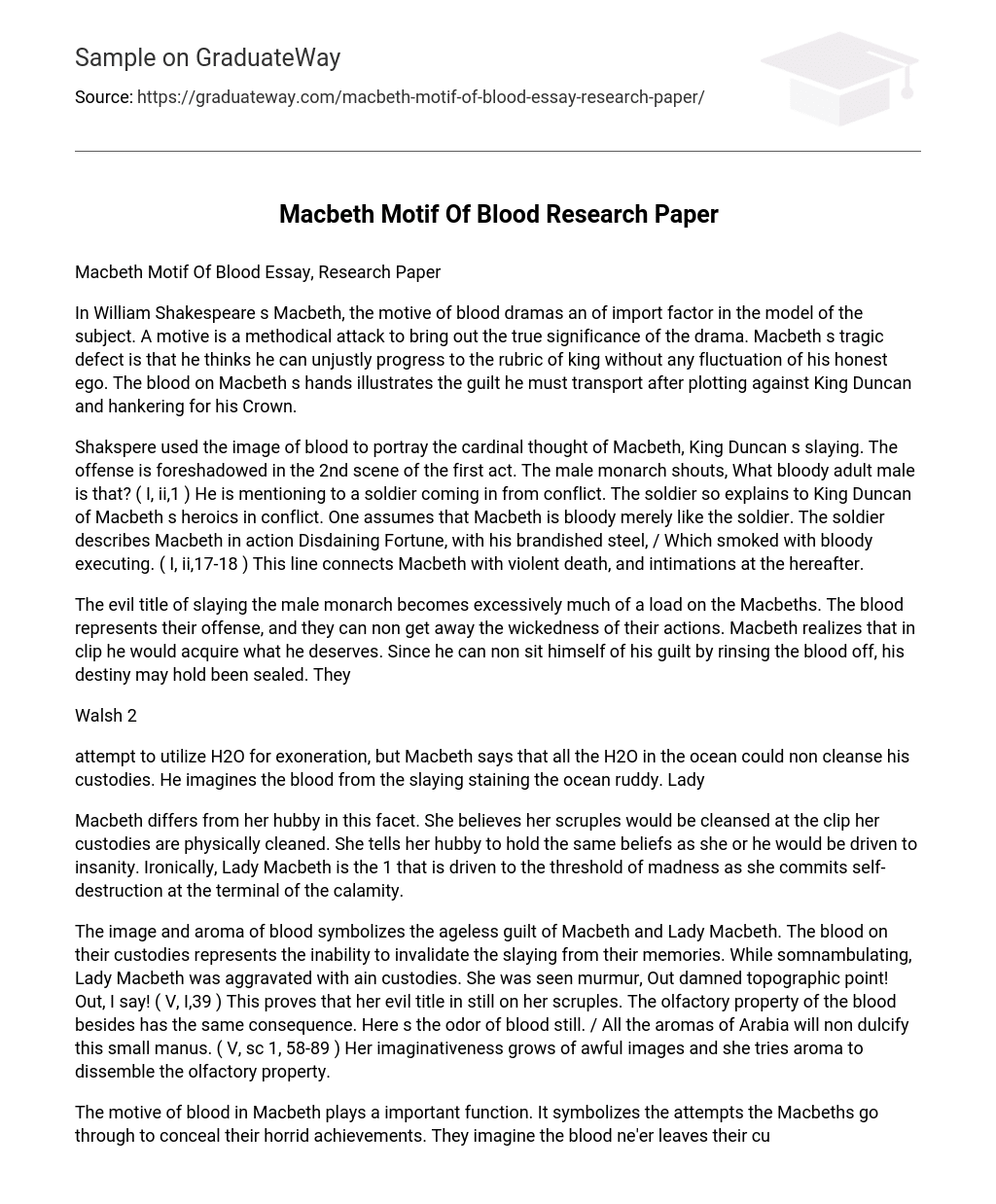Macbeth Motif Of Blood Essay, Research Paper
In William Shakespeare s Macbeth, the motive of blood dramas an of import factor in the model of the subject. A motive is a methodical attack to bring out the true significance of the drama. Macbeth s tragic defect is that he thinks he can unjustly progress to the rubric of king without any fluctuation of his honest ego. The blood on Macbeth s hands illustrates the guilt he must transport after plotting against King Duncan and hankering for his Crown.
Shakspere used the image of blood to portray the cardinal thought of Macbeth, King Duncan s slaying. The offense is foreshadowed in the 2nd scene of the first act. The male monarch shouts, What bloody adult male is that? ( I, ii,1 ) He is mentioning to a soldier coming in from conflict. The soldier so explains to King Duncan of Macbeth s heroics in conflict. One assumes that Macbeth is bloody merely like the soldier. The soldier describes Macbeth in action Disdaining Fortune, with his brandished steel, / Which smoked with bloody executing. ( I, ii,17-18 ) This line connects Macbeth with violent death, and intimations at the hereafter.
The evil title of slaying the male monarch becomes excessively much of a load on the Macbeths. The blood represents their offense, and they can non get away the wickedness of their actions. Macbeth realizes that in clip he would acquire what he deserves. Since he can non sit himself of his guilt by rinsing the blood off, his destiny may hold been sealed. They
Walsh 2
attempt to utilize H2O for exoneration, but Macbeth says that all the H2O in the ocean could non cleanse his custodies. He imagines the blood from the slaying staining the ocean ruddy. Lady
Macbeth differs from her hubby in this facet. She believes her scruples would be cleansed at the clip her custodies are physically cleaned. She tells her hubby to hold the same beliefs as she or he would be driven to insanity. Ironically, Lady Macbeth is the 1 that is driven to the threshold of madness as she commits self-destruction at the terminal of the calamity.
The image and aroma of blood symbolizes the ageless guilt of Macbeth and Lady Macbeth. The blood on their custodies represents the inability to invalidate the slaying from their memories. While somnambulating, Lady Macbeth was aggravated with ain custodies. She was seen murmur, Out damned topographic point! Out, I say! ( V, I,39 ) This proves that her evil title in still on her scruples. The olfactory property of the blood besides has the same consequence. Here s the odor of blood still. / All the aromas of Arabia will non dulcify this small manus. ( V, sc 1, 58-89 ) Her imaginativeness grows of awful images and she tries aroma to dissemble the olfactory property.
The motive of blood in Macbeth plays a important function. It symbolizes the attempts the Macbeths go through to conceal their horrid achievements. They imagine the blood ne’er leaves their custodies, and the truth ne’er leaves their heads. The offense of slaying carried a guilt that neither one could dispatch.





